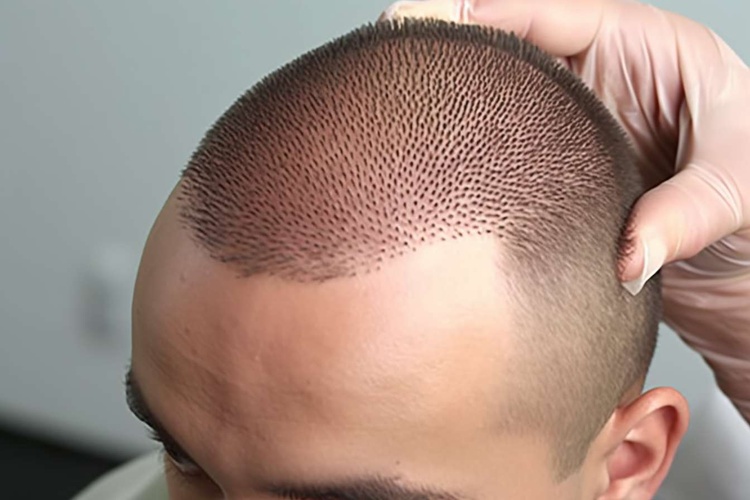Hair Transplant Costs: UK vs Turkey in 2026
The rising trend of hair transplants has positioned the United Kingdom and Turkey as leading destinations, each with unique advantages. Britain offers regulated, high-standard services, while Turkey excels in cost-effectiveness and comprehensive care packages. Understanding the cost dynamics, advantages, quality standards, and risks aids in making an informed decision, ensuring successful and satisfactory procedures.

Hair loss is a widespread concern affecting many individuals, leading them to seek effective solutions like hair transplantation. This procedure, which involves moving hair follicles from one part of the body to a balding area, has seen considerable advancements in techniques and accessibility. As demand for cosmetic procedures continues to grow globally, prospective patients often weigh their options between local services and international destinations, particularly when significant cost differences are present. The choice between receiving treatment in the UK or Turkey for hair restoration is a common dilemma, prompting a detailed look into what each option entails.
Understanding the Upsurge in Hair Transplants
The increasing popularity of hair transplant procedures can be attributed to several factors, including technological advancements that offer more natural-looking results and reduced recovery times. Techniques such as Follicular Unit Extraction (FUE) and Follicular Unit Transplantation (FUT) have become refined, making the procedure less invasive and more appealing to a broader demographic. Social media and public figures openly discussing their experiences have also contributed to destigmatizing the procedure, encouraging more individuals to explore hair restoration as a viable solution for hair loss. The desire for improved self-confidence and appearance often drives this decision.
The Cost Dynamics: UK vs. Turkey
When considering a hair transplant, the financial aspect often plays a pivotal role in decision-making. The cost of a hair transplant in the United Kingdom typically reflects higher operational expenses, including clinic overheads, surgeon fees, and staff salaries. These factors contribute to a higher overall price point for procedures performed in local services. In contrast, Turkey has emerged as a prominent destination for medical tourism, particularly for hair transplants, primarily due to its comparatively lower costs. This significant price disparity often makes Turkey an attractive option for international patients seeking more affordable treatment without necessarily compromising on quality.
Advantages of Choosing Turkey
Turkey’s appeal as a destination for hair transplants extends beyond just the cost savings. The country boasts a high concentration of specialized clinics and experienced surgeons, many of whom perform a large volume of procedures annually. This high volume can lead to greater expertise and efficiency. Many Turkish clinics also offer comprehensive packages that include accommodation, airport transfers, and post-operative care, which can further enhance the overall value proposition for international patients. The competitive market in Turkey also drives clinics to continually invest in modern technology and patient services to attract clients.
Comparative Quality and Safety
While cost is a major factor, the quality of care and patient safety are paramount. Both the UK and Turkey have regulatory bodies overseeing medical practices, though the enforcement and standards can vary. In the UK, clinics are regulated by organizations like the Care Quality Commission (CQC), ensuring adherence to specific health and safety guidelines. In Turkey, clinics are also subject to regulations from the Ministry of Health. Patients considering treatment in either country are advised to thoroughly research clinic accreditations, surgeon qualifications, patient reviews, and before-and-after results to ensure a high standard of care and mitigate potential risks. It is crucial to verify the credentials of medical professionals and the safety protocols in place.
Understanding the financial outlay for a hair transplant is crucial for planning. The pricing can vary significantly based on factors such as the number of grafts required, the technique used (FUE or FUT), the clinic’s reputation, and the surgeon’s experience. While specific prices for 2026 are estimates, current trends suggest a notable difference between the UK and Turkey. For instance, a procedure involving 2000-3000 grafts might have different price points across these regions.
| Service | Provider | Cost Estimation (GBP) |
|---|---|---|
| Hair Transplant (FUE) | UK Clinic (e.g., Harley Street Hair Clinic) | £4,000 - £12,000 |
| Hair Transplant (FUE) | Turkish Clinic (e.g., EsteNove) | £1,500 - £4,000 |
| Hair Transplant (FUT) | UK Clinic (e.g., London Hair Transplant Clinic) | £3,000 - £10,000 |
| Hair Transplant (FUT) | Turkish Clinic (e.g., Smile Hair Clinic) | £1,200 - £3,500 |
Prices, rates, or cost estimates mentioned in this article are based on the latest available information but may change over time. Independent research is advised before making financial decisions.
Weighing Risks and Benefits
Every medical procedure carries inherent risks and potential benefits, and hair transplantation is no exception. Benefits often include improved hair density, a more youthful appearance, and enhanced self-esteem. However, risks can include infection, scarring, unnatural-looking results, and shock loss of existing hair. Patients must consider these factors carefully and have realistic expectations about the outcome. A thorough consultation with a qualified professional, discussing medical history and desired results, is essential to make an informed decision and understand both the positive aspects and potential complications associated with the procedure, regardless of the chosen location.
The decision to undergo a hair transplant in 2026, whether in the UK or Turkey, involves a careful evaluation of various factors beyond just the initial cost. While Turkey offers a compelling financial advantage and extensive experience in the field, the UK provides the convenience of local services and established regulatory frameworks. Prospective patients are encouraged to conduct comprehensive research into clinics, surgeons, and patient care standards in both regions. Prioritizing safety, quality of results, and post-operative support alongside budgetary considerations will contribute to a more informed and satisfactory hair restoration journey.




